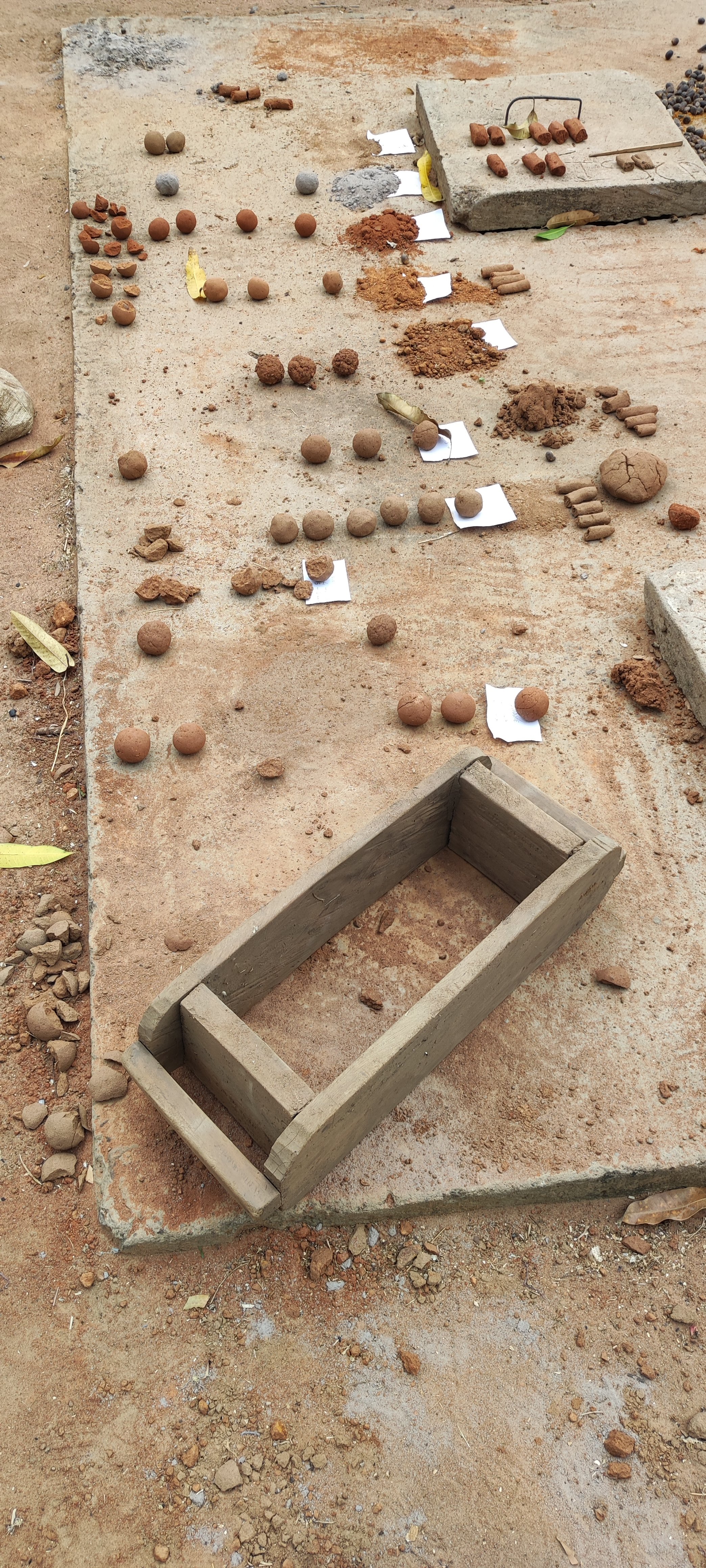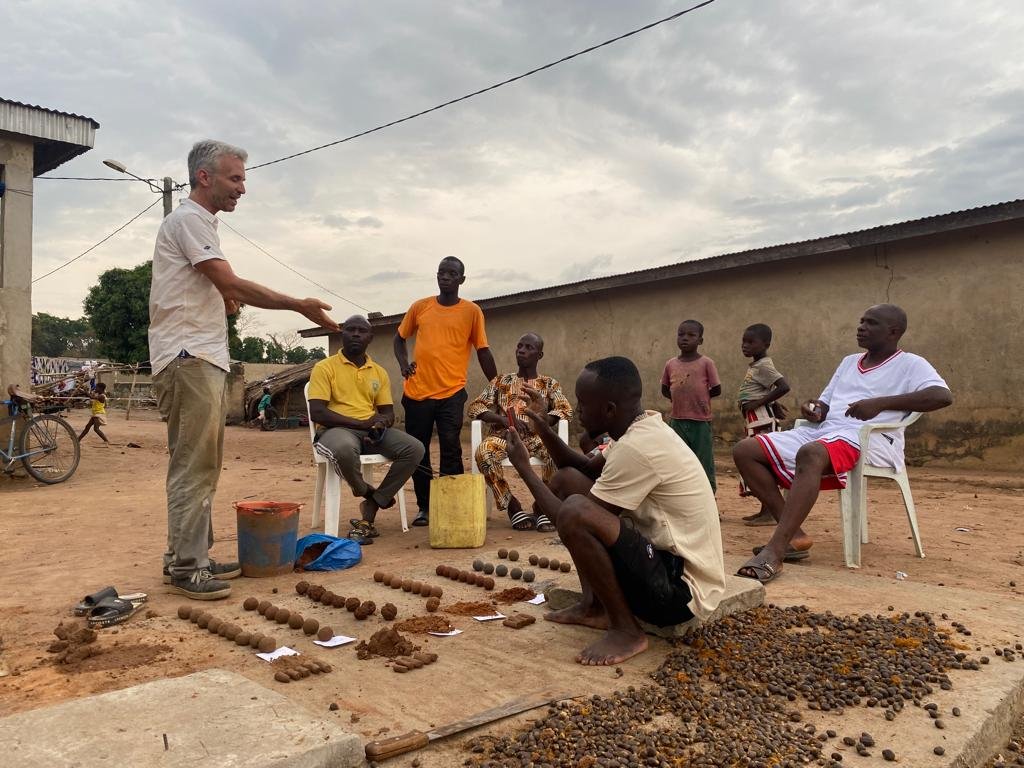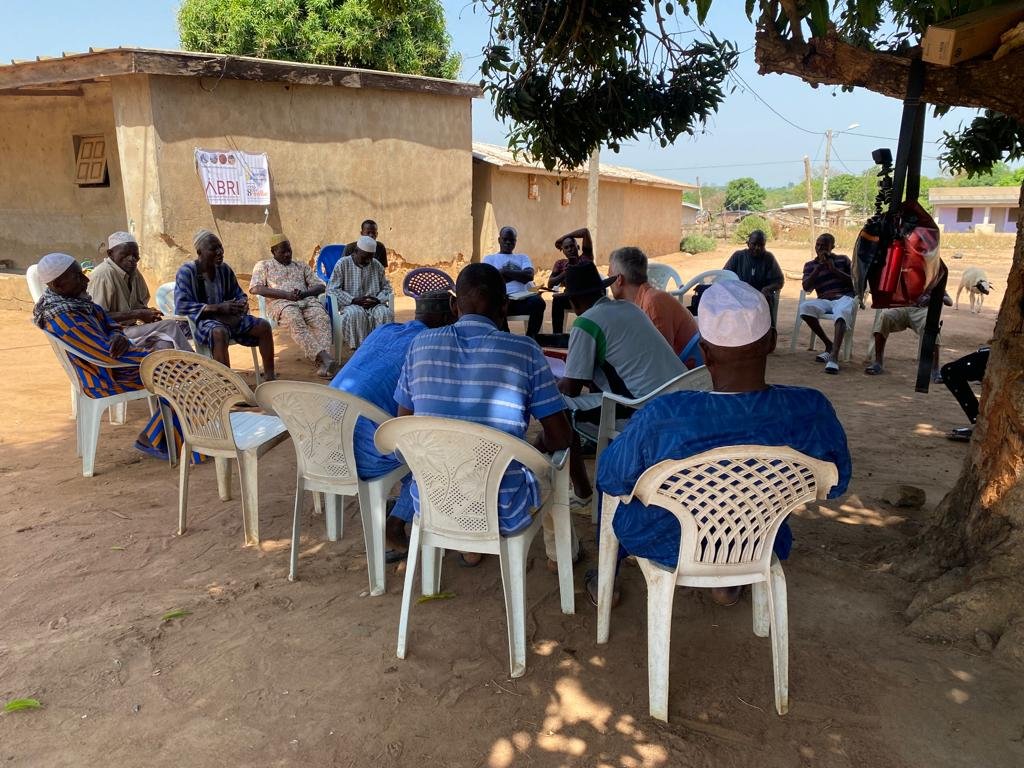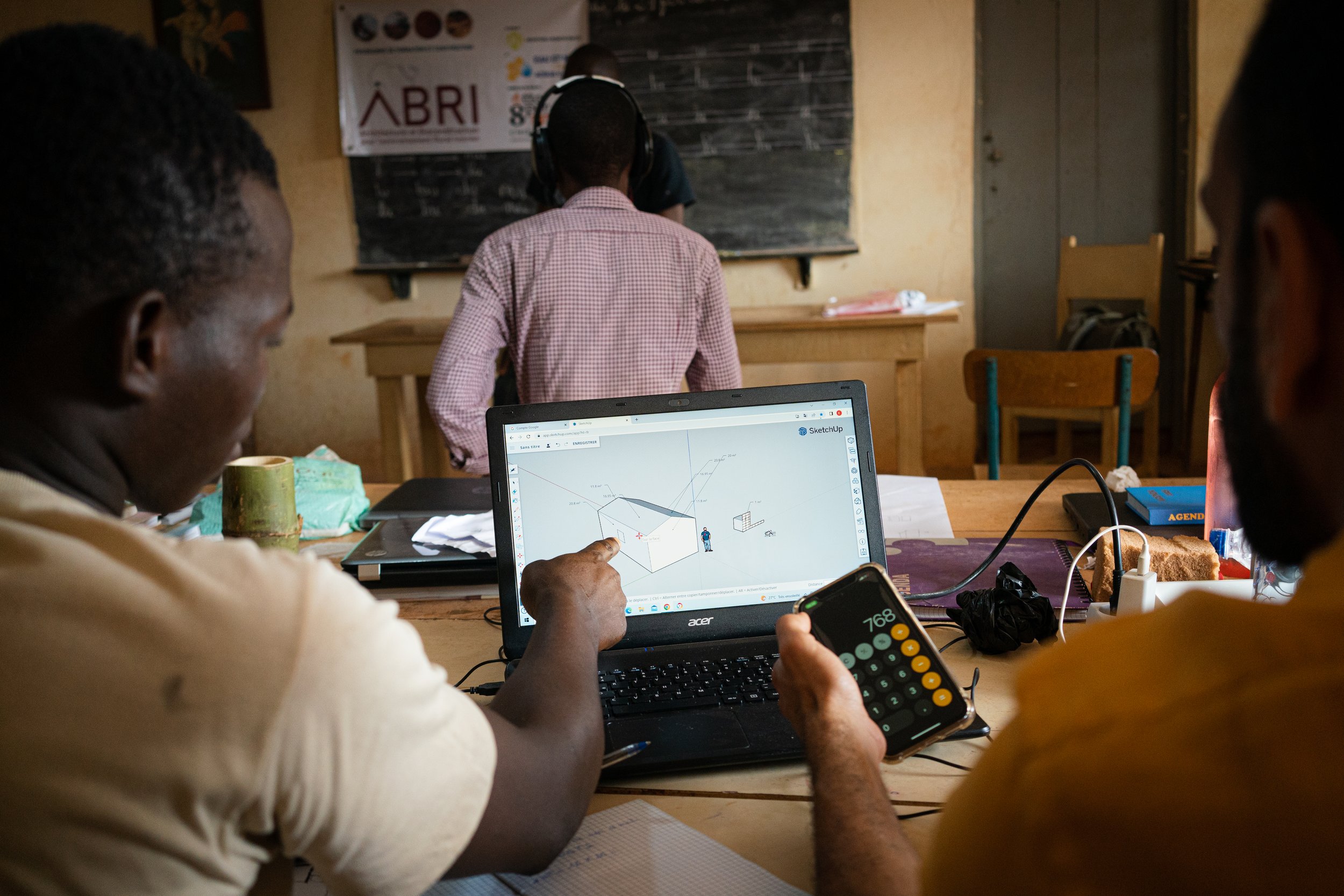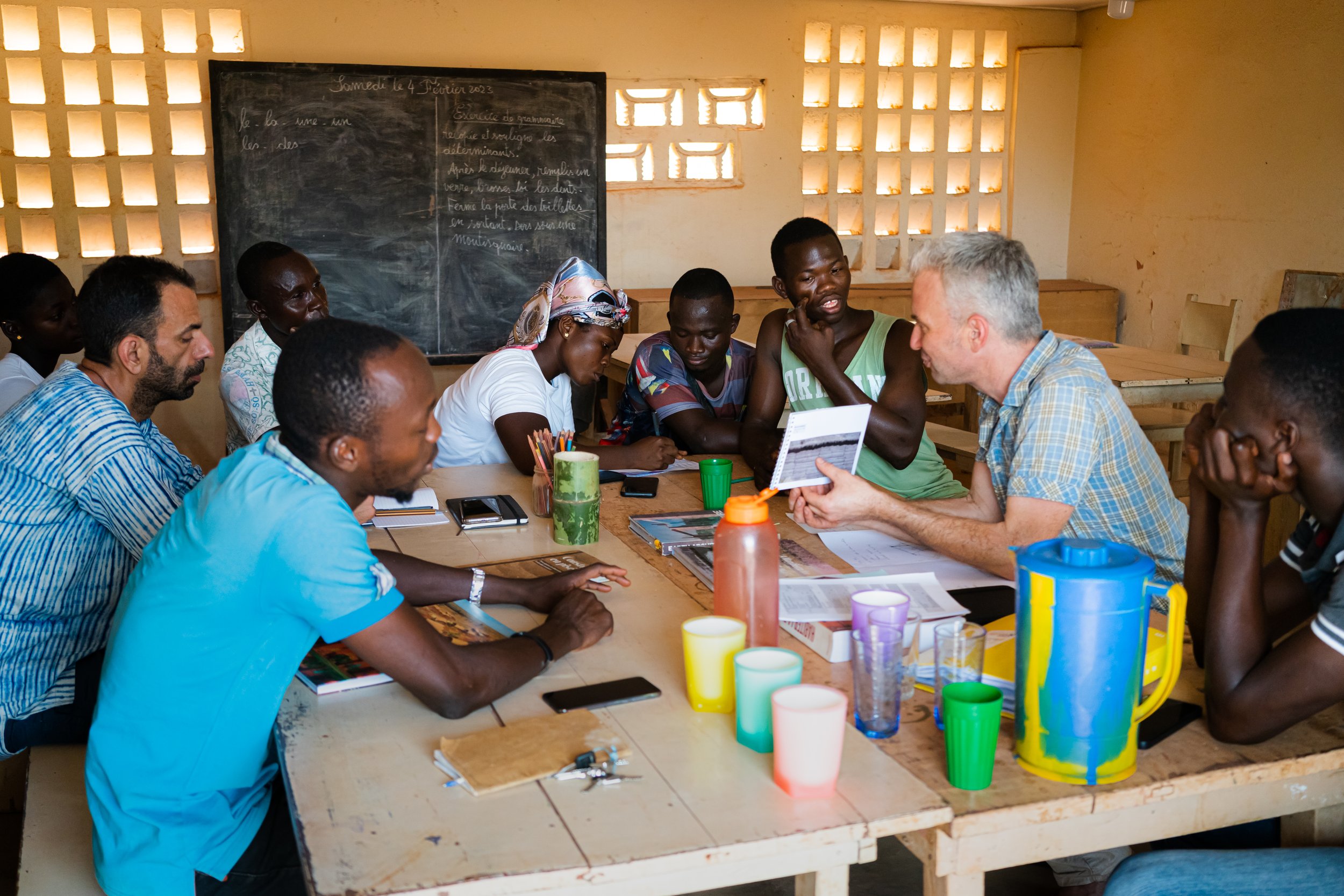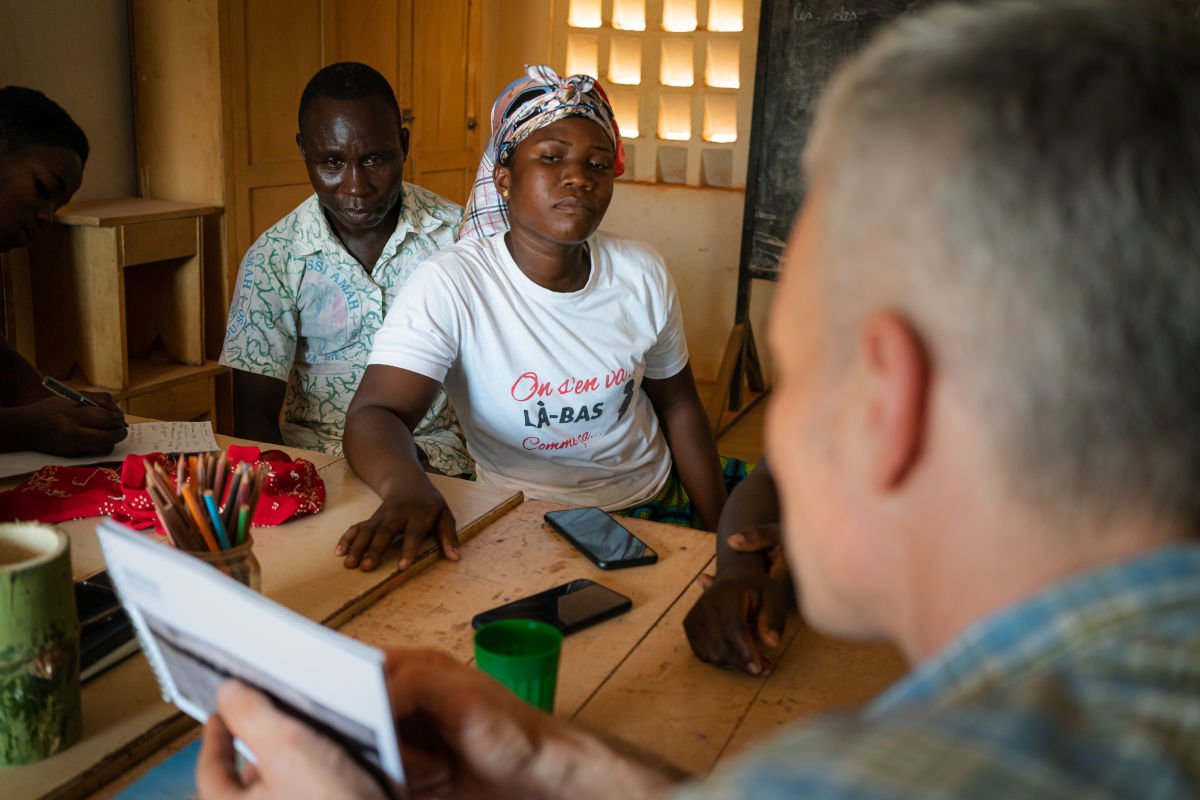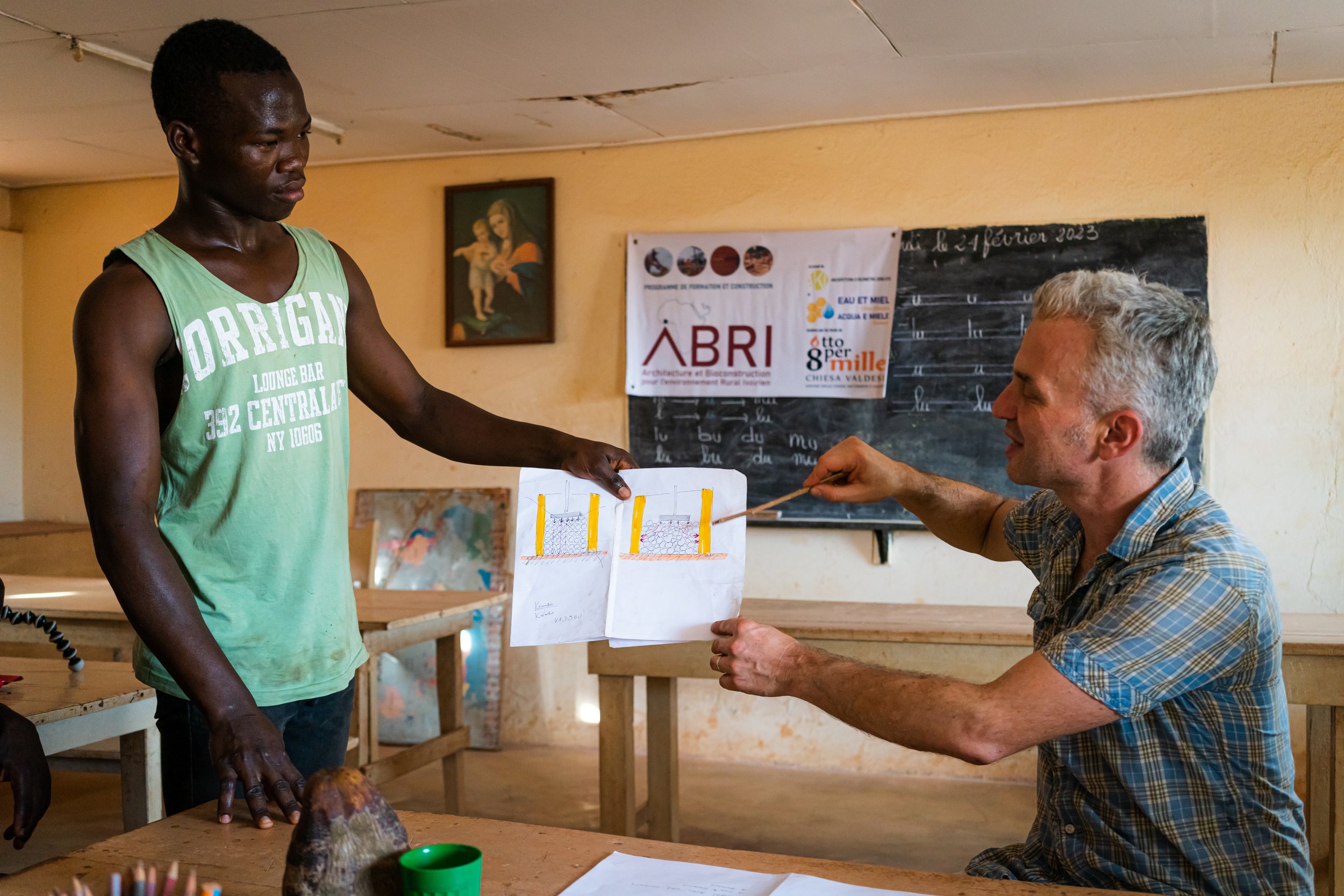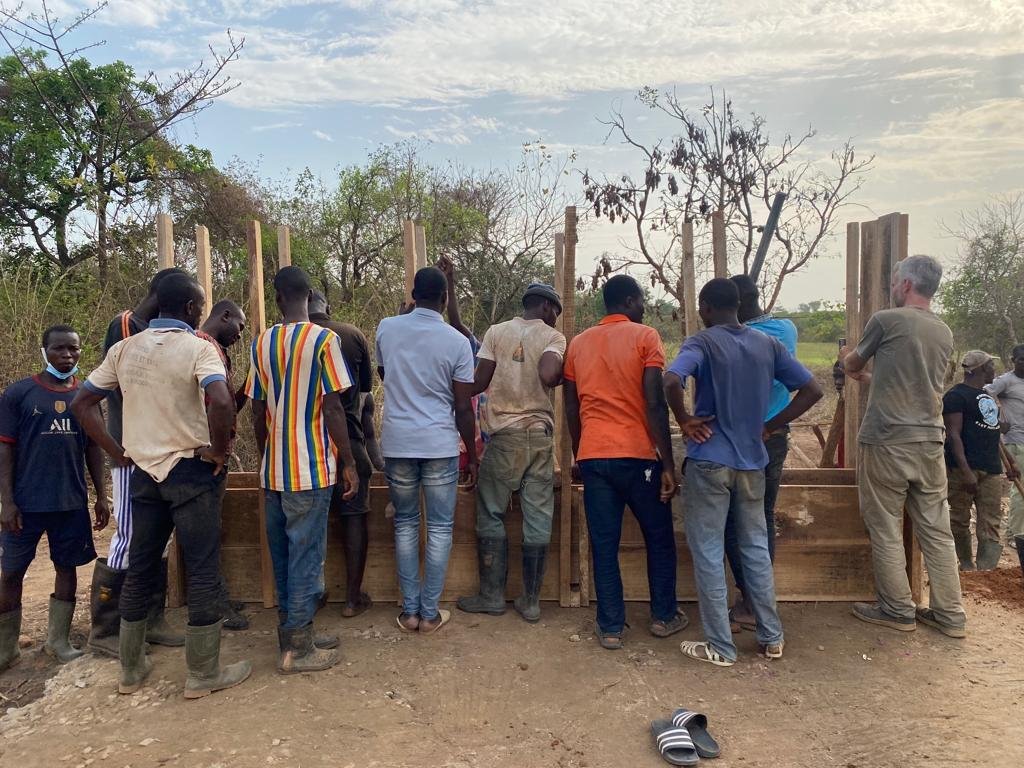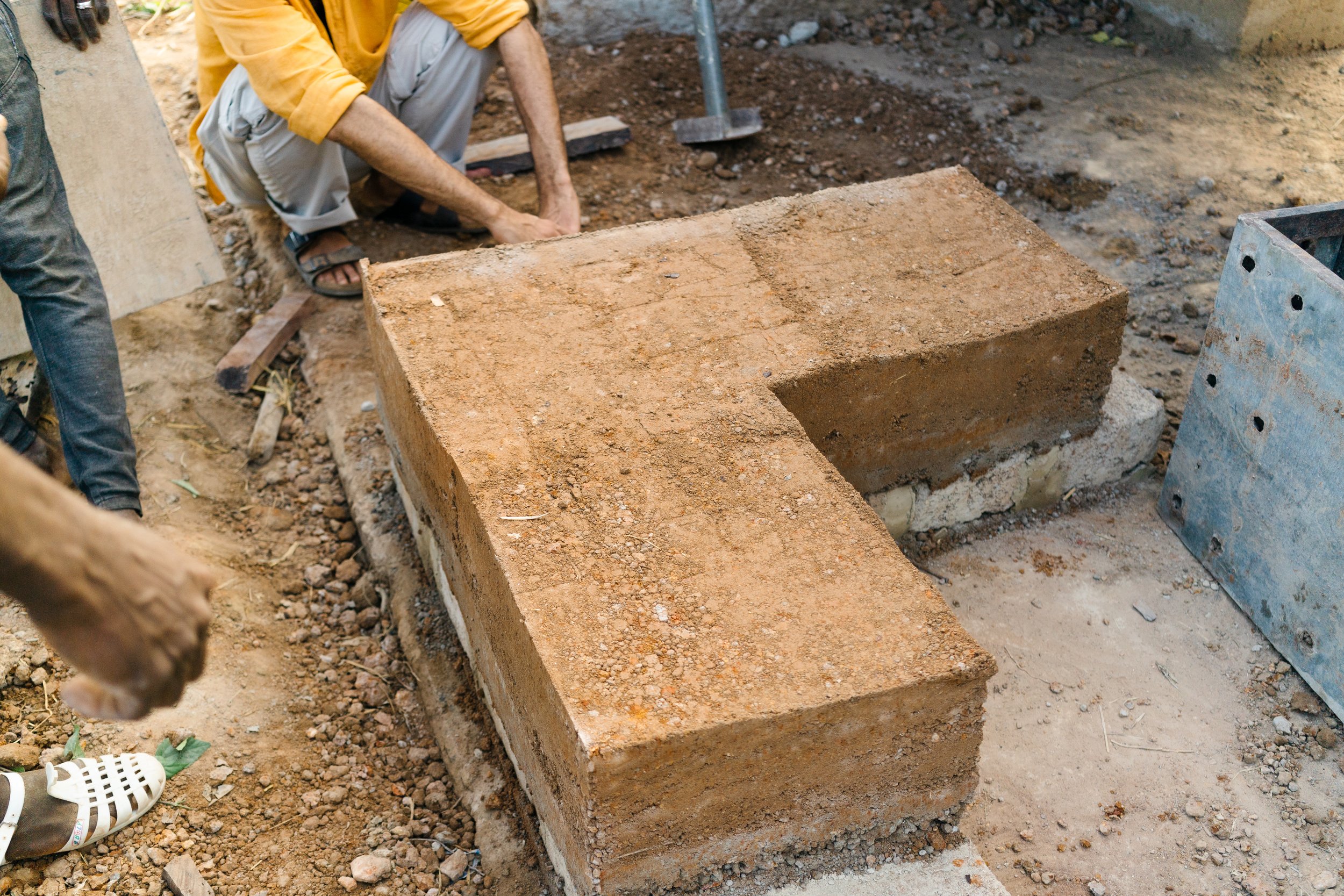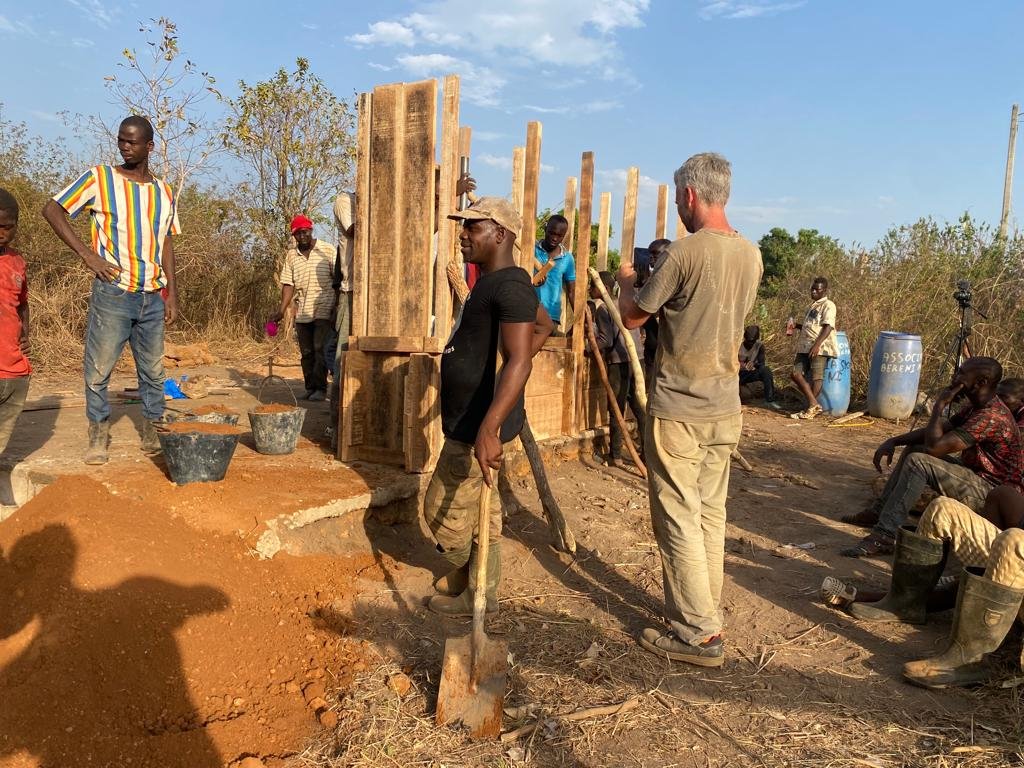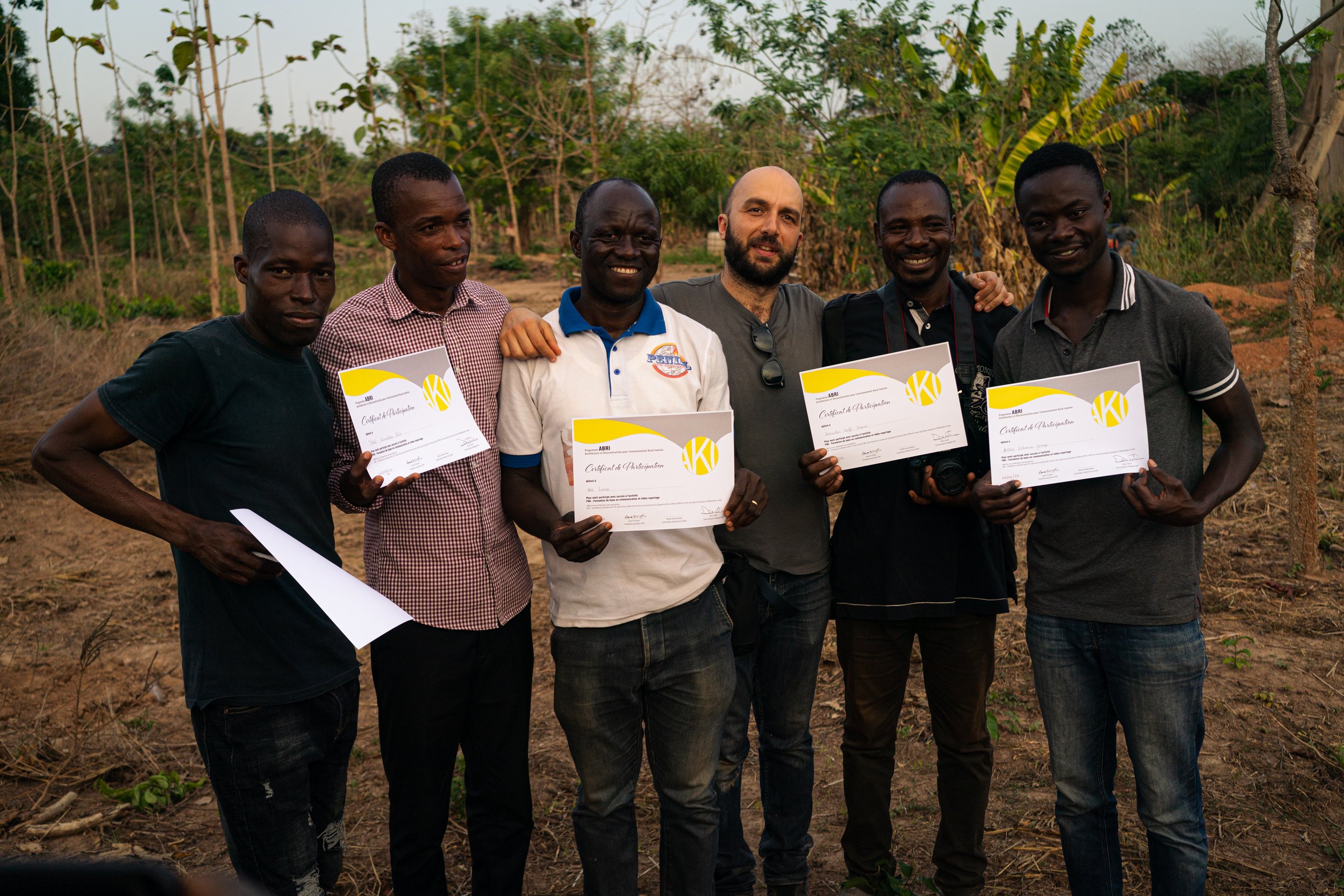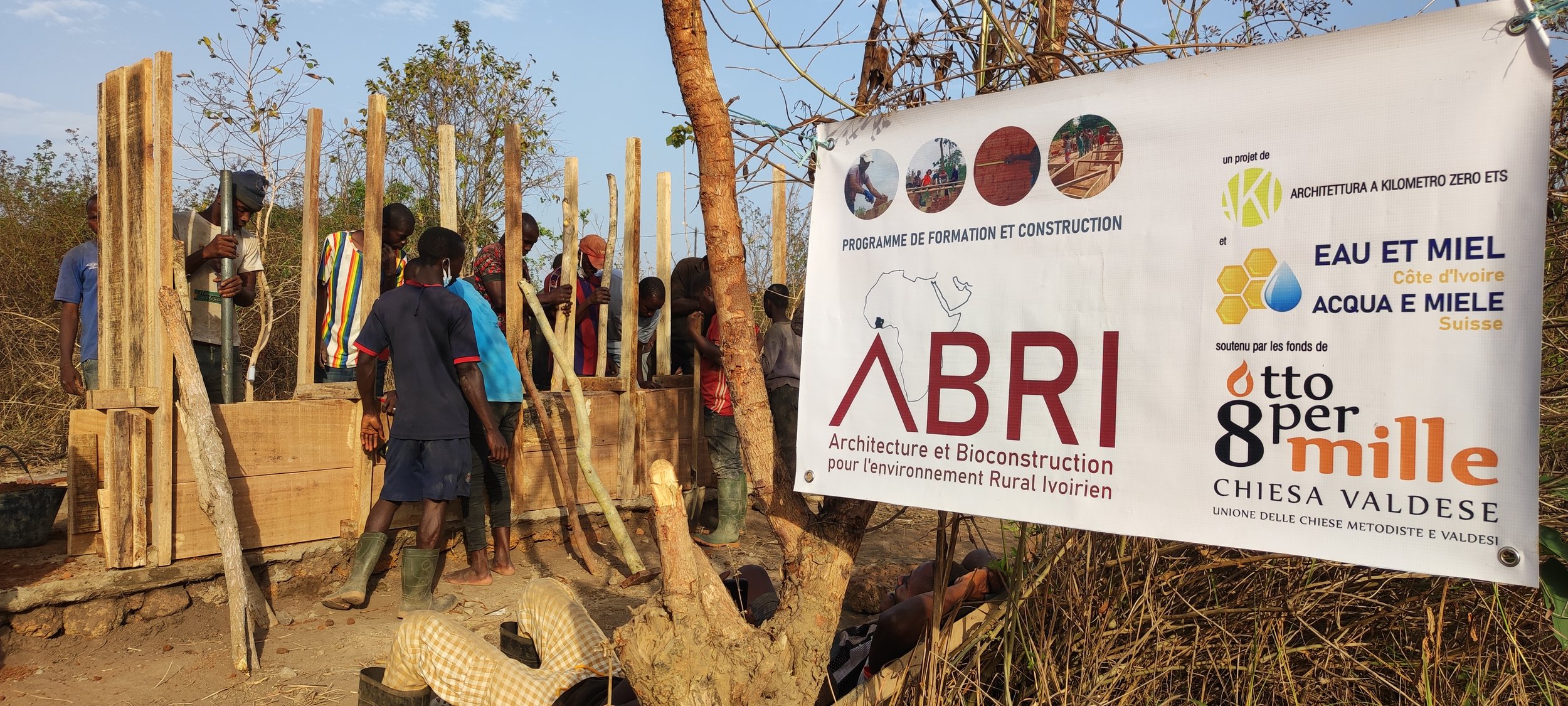News from our partners - Learning by building in West-Africa
Since 2018 our Italian partners from AK0 – architettura a kilometro zero are active in Côte d'Ivoire with a training and building program that aims at reinforcing sustainable architecture approaches in the country's rural areas.
For more than four years the program was mainly concentrated on the town of Prikro and its outskirts in the Iffou region, some 300km north of Abidjan where the initiated activities included experimental workshops, training sessions as well as an educational building site hosting a first pilot building. On place, the program is co-managed by Eau et Miel Côte d'Ivoire, a local NGO that promotes projects of water management, bee-keeping as well as awareness-rising on other environmental and social issues.
The openness beekeepers and environmental activist proved to have on crucial aspects in these fields provided fertile terrain for a cooperation on the built environment and sustainable architecture. The need for such a collaboration roots in the observation that sustainability is implicit in most of the everyday architecture of the area. Houses are still built mainly with locally sourced raw earth or vegetable fibres and shared working approaches are common in the rural communities. At the same time, construction work is often executed too rapidly and with scarcely controlled technical details, which eventually leads to having a housing stock considered to be unsatisfactory even by its own builders.
In order to enhance the technical skills and disseminate good practices of sustainable building, the AK0 team and its local partners decided to adapt the successful experience made through six years of practical training on educational building sites all over Europe within the LearnBIØN program to the specific context of Côte d'Ivoire's inner areas. The efforts aim at convincing the local populations that a well built earth house is much better than a poorly built concrete house.
Six training courses, each of them dedicated to a specific technique or detail aspect have been activated in 5 different sites. The technical issues treated include building with rammed earth, the vegetable tropical roof, types of foundation for raw earth buildings as well as building with bamboo. All training activities contemporarily contribute to the building of small structures that are needed in the hosting communities. Besies optimising the spent resources, this generates extra involvement. One workshop has been organised as an upgrade-training for a group of former participants who decided to found a building cooperative engaged in disseminating renewable construction systems in their area.
The project is now in its multiplication phase. Two workshops have already been held in Prikro and Béreni-Marhana, a small village close to Séguéla. Further training sites will open soon in the localities of Katiola, Gohfla and Tanda.



